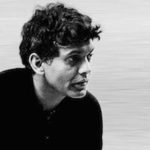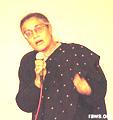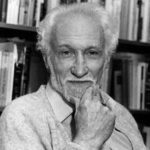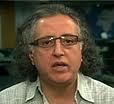Terrorism: Theirs and Ours
Terrorism is the scourge of the era. It is a fearsome symbol conjuring up images of ferocious-looking, bearded men brandishing AK-47s. The media focus on the terrorism of official enemies like Saddam Hussein, bin Laden, and Zarqawi. After they were done away with, new demons appear to justify war and bloat the Pentagon budget. Be afraid of ISIS and Al Qaeda in the Arabian Peninsula. Be afraid of Yemen and Somalia, Pakistan and Afghanistan, Iraq and Syria. Be afraid of all the jihadi groups that have mushroomed all over the Middle East. The notion that the U.S. and its allies engage in terrorism is simply not a topic for discussion. To scrutinize U.S. policy is verboten. The War on Terror goes on and on.
Recorded at the University of Colorado.
Speaker

Eqbal Ahmad
Eqbal Ahmad was Professor Emeritus of International Relations and Middle Eastern Studies at Hampshire College in Amherst, Massachusetts. He had an extraordinary life. He was born in Irki, Bihar to an Indian Muslim landowning family. His father was murdered because he was parceling out land to peasants. Upon the partition of India in 1947 he went to Pakistan. He came to the U.S. to attend Princeton. He was in Algeria during the revolt against French rule. For many years he was managing editor of Race and Class. His articles and essays appeared in The Nation and other journals throughout the world. He wrote a weekly column for Dawn, Pakistan’s oldest English newspaper. He was one of the most original and influential anti-imperialist thinkers of his era. He was a leading figure in the anti-Vietnam War movement. He was a remarkable and persuasive orator. As a teacher, he was mentor and inspiration to many. He was a close ally of Edward Said, Noam Chomsky and Howard Zinn. Edward Said called him “an intellectual unintimidated by power or authority.” Confronting Empire and Terrorism Theirs & Ours are the two books he did with David Barsamian. Eqbal Ahmad died in Islamabad on May 11, 1999.





Linda Jaffe-Ritchie –
Excellent. It explains so much. This should be listened to by everyone who doesn’t understand the other person’s experiences. It gives the whole story not just one side as we so often hear. Terrorism begets terrorism. We need to hear each other before taking such drastic measures as endless wars. There are other options.
Viola Morris –
A most timely and thorough broadcast. I wish it could be mandatory for all to listen. The absolutely perfect broadcast for this anniversary of 9/11. And the juxtaposition of this against the backdrop of the Afghanistan withdrawal makes it even more potent.